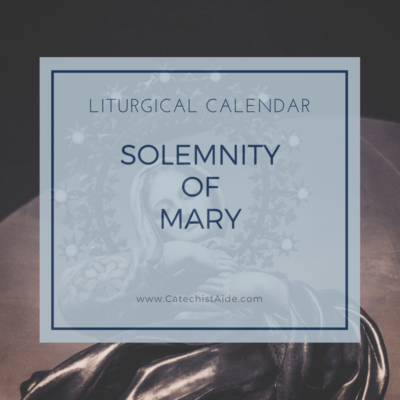Forty days after Easter we celebrate the Solemnity of the Ascension of the Lord. When we think of Easter our thoughts go immediately to Christ’s suffering and death on Good Friday and of course his glorious resurrection on the third day. By the time we reach Easter, after the long season of Lent, we are all ready to celebrate some good news, or shall I say The Good News. We are thankful for the great redemptive sacrifice of Jesus and reminded that one day we will all share in the resurrection. We tend to view Easter as the full and final culmination of God’s saving plan, reducing the Ascension to nothing more than Jesus going back to the Father for a pat on the head for a job well done. It is no surprise then, that the Ascension is, possibly, the most overlooked feast of the Liturgical year. But, the Easter season does not end with Easter Sunday. And, we sometimes forget that the Paschal Mystery does not conclude with Christ’s Resurrection, but with his Ascension.
“The wonderful works of God among the people of the Old Testament were but a prelude to the work of Christ the Lord in redeeming mankind and giving perfect glory to God. He accomplished this work principally by the Paschal mystery of his blessed Passion, Resurrection from the dead, and glorious Ascension, whereby ‘dying he destroyed our death, rising he restored our life.’ For it was from the side of Christ as he slept the sleep of death upon the cross that there came forth ‘the wondrous sacrament of the whole Church” – Catechism of the Catholic Church 1067
Here then are three reasons why the Ascension really matters:
1. It gives us hope that we too will share eternal life in heaven.
Perhaps the most overlooked message of the Ascension is that when Jesus ascended into heaven, he brought his earthly body, his humanity, into the heavenly realm. Jesus’ human nature was not a costume that he wore on earth and then cast off before he returned home. Jesus did not play the role of a man for 33 years and then go back to his day job after the Ascension.
The Jesus that the apostles witnessed after the resurrection was not a ghost, nor was he a resuscitated corpse. He was the same, yet different. He walked and talked with his friends, and ate and drank with them, but he could also enter a room through a locked door. The apostle Thomas even examined the crucifixion wounds of the risen Christ. It’s important to remember that the Hypostatic Union continues in heaven. Jesus returned to heaven as God AND man. This gives us hope that one day we too will enjoy eternal life in our own resurrected bodies. Jesus told the apostles that he was going to prepare a place for them. Without the Ascension how could we enter heaven?
“In my Father’s house there are many dwelling places. If there were not, would I have told you that I am going to prepare a place for you? And if I go and prepare a place for you, I will come back again and take you to myself, so that where I am you also may be. Where [I] am going you know the way. Thomas said to him, “Master, we do not know where you are going; how can we know the way?” Jesus said to him, “I am the way and the truth and the life. No one comes to the Father except through me” – John 14: 2-6
2. From his place at the right hand of the Father, Jesus intercedes for us.
After his Ascension, Jesus took his place at the right hand of the Father. It is from this position that Jesus intercedes on our behalf, and we can have confidence that the Father hears us and will have mercy on us. Jesus, who through the Incarnation became man, understands us. Who better to intercede for us?
“Therefore, since we have a great high priest who has passed through the heavens, Jesus the Son of God, let us hold fast to our confession. For we do not have a high priest who is unable to sympathize with our weaknesses, but one who has similarly been tested in every way, yet without sin. So let us confidently approach the throne of grace to receive mercy and to find grace for timely help.” – Hebrews 4: 14-16
3. After his Ascension, he sent us the Holy Spirit.
He sent us the Holy Spirit to be our guide. Before his Ascension, Jesus told the apostles that it would be better for them if he went back to the one who sent him. But, he also promised that he would not leave them orphans. He would send someone to guide them.
“But I tell you the truth, it is better for you that I go. For if I do not go, the Advocate will not come to you. But if I go, I will send him to you. … But when he comes, the Spirit of truth, he will guide you to all truth. He will not speak on his own. But he will speak what he hears, and will declare to you the things that are coming.” John 16: 7, 13
The Holy Spirit is the living presence of God in the world today. He gives grace to those who are receptive to him. He guides the Church (and each of us) to the truth – not “my truth” or “your truth” but THE truth. Through the power of the Holy Spirit the Apostles were able to continue Christ’s ministry and grow his Church on earth. That same power is available to us today. We sometimes ask ourselves how would we respond if Jesus were in our midst, as he was with the Apostles. Well, the Holy Spirit is in our midst right now, and he is speaking to us. He offers us the same guidance and strength that he gave to the Apostles two thousand years ago. As we celebrate the Ascension of our Lord, it’s a good time to ask ourselves how receptive are we to his gifts?
© 2017 Catechist’s Aide


